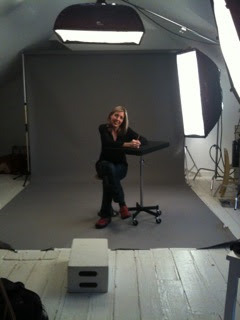Kelli Russell Agodon's Blog, page 99
November 22, 2010
Dreaming about Branding... the Remix
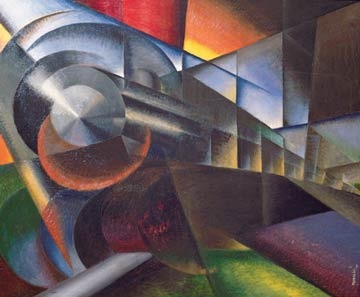
Speeding Train', Ivo Pannaggi, Cassa di Risparmio, Macerata
So last night, I ended up dreaming about the conversation I've been writing about and having with people, this idea of "branding" ourselves as writers.
In my dream, we agreed that if we must be branded then *we* (the writers) should determine the word instead of brand. The word we came up with? Loco. I'm assuming you all know this, but loco is Spanish for crazy, mad.
Yes, we decided that we would create our own loco as writers. The loco called me.
And this morning I wondered if my subconscious brain came up with this because of the word: locomotive which in my dreamworld breaks down to "loco motive" (aka crazy motive).
~
Maybe this is where my head goes when I think about branding. It's crazy because ultimately we are judged on *what* we write, not *who* we are. The writing needs to come before the person. We need to create our own language, our own rules, our own selves and not follow the lead of the corporate world when it comes to art, artistic endeavors, and/or the act of creating.
I do not want to suggest that I believe we should live in cardboard huts writing poems on the back of magnolia blossoms, but just not to be so open to allow others' vision for what we should be or how we should refer to it, to creep into our vocabulary. I think as much as possible, we should try to stay out of the language of commerce as much as possible and into the language of creation.
And I think this is what I where I see branding a negative.
Many of you have talked about the positives of branding and what you want to be known for or how it's helped you focus your writing or market your work, but I think that is only just the very hem of branding, a few stitches, but not what I see this lower layer of branding to be. I see branding in its very worst of taking away the authentic, not deepening it.
What the writers/poets who responded to my last post were talking about, felt different and more positive than that. It felt like focusing. It felt like they were creating opportunities for themselves. I believe a writer/poet/artist *needs* to promote their work, it is part of the job as much as some of us can be uncomfortable with it, but that promotion, to me, is *not* branding.
Collin Kelley mentioned about being (or branding) himself as a social media consultant and again, to me this is not branding, but focusing. He's found something he's good at and a place where he has knowledge to help others, but while having this expertise, he is also a poet, playwright, novelist, an editor. He is multi-talented, but while I know Collin for all these things, I don't see him as someone who has branded himself (Collin, I do hope you know this is compliment from me.) I think if he were to brand himself, he would limit himself.
Maybe I'm just focusing on the language we use (I am!) but I think it's important for us as artists not to get caught up in the outside world's attempt to make us become their marionettes where we create our world based on what they say is important.
And I know, I could be completely wrong on this. I could be the poet in the cardboard box because I didn't jump on the branding train as it was heading out of town, but I guess I'm going to risk that. My mind does not work that way. My best decisions have always come from a gut level, from instinct.
Michael Wells made an interesting comment about branding, "I doubt that you spent a weekend mind mapping what you wanted people to see you as and tailor making your every move as a writer to create that image." This is correct and the idea of doing this hurts my head. And I think this is what I hope writers and artists move away from, from creating your own image, but to spend energy on creating the type of art you love. Create the image in your poem or painting, the images that overflow in your fiction, these are the images that are important.
Oh there are so many other trains we can jump on, so many locomotives to take. Ultimately, I think many of us want to end up at the same place-- to have our writing read and respected, to be an artist in the world and maybe, be known or remembered for what we created.
However you get there, whatever train you catch or even if walk, crawl or slow jog there, may your ride be smooth and beautiful. This is what I wish for all of us.
~








Published on November 22, 2010 04:24
November 21, 2010
Artist C.T. Chew & Walt Whitman: An Artful Sunday Morning...
So a few posts ago I was mentioning my love for art museums and how they always inspire me. I mentioned how I remember my first Jacob Lawrence exhibit as well as seeing a Seattle artist's work there, C.T. Chew.
Well, my curiosity got the best of me and I found myself googling C.T. Chew to see if he was still doing art and what he's been up to.
Not only has he been doing art, but it's incredible. And poetic. So I wanted to share a few of his pieces (with his permission) of some of his remarkable work--

"Come, said my soul" by C.T. Chew
Print: Giclée on Paper, Limited Edition of 50, Aspect: 20"H x 15"W, 2010
This first image above "Come, said my soul" is probably my favorite. Many of you know Whitman's love for the butterfly when I look at that image in the center, I see Whitman's poem becoming that winged thing and fluttering off.
Another Whitman inspired piece, is this one below:

"Miracles" by C.T. ChewPrint: Giclée on Paper, Limited Edition of 50, Aspect: 20"H x 15"W, 2010
So wonderful. (I'll include Whitman's "Miracles" poem below so you can read the inspiration.)
It was such a treat, a gift, a miraculous occurrence to find this artist again. I find his work so intriguing and it's something I connect with. I'm always interested in what draws us to one artist and not to another. But I am a definite fan.
If you need some inspiration, check out C.T. Chew's website here.
And his current works here, including the Walt Whitman pieces (which I believe are for sale.)
And one more Whitman inspired piece:

Unfolded by C.T. Chew
Print: Giclée on Paper, Limited Edition of 50, Aspect:15"H x 20"W, 2010
~ ~ ~
Miracles
by Walt Whitman
Why, who makes much of a miracle?
As to me I know of nothing else but miracles,
Whether I walk the streets of Manhattan,
Or dart my sight over the roofs of houses toward the sky,
Or wade with naked feet along the beach just in the edge of the water,
Or stand under trees in the woods,
Or talk by day with any one I love, or sleep in the bed at night
with any one I love,
Or sit at table at dinner with the rest,
Or look at strangers opposite me riding in the car,
Or watch honey-bees busy around the hive of a summer forenoon,
Or animals feeding in the fields,
Or birds, or the wonderfulness of insects in the air,
Or the wonderfulness of the sundown, or of stars shining so quiet
and bright,
Or the exquisite delicate thin curve of the new moon in spring;
These with the rest, one and all, are to me miracles,
The whole referring, yet each distinct and in its place.
To me every hour of the light and dark is a miracle,
Every cubic inch of space is a miracle,
Every square yard of the surface of the earth is spread with the same,
Every foot of the interior swarms with the same.
To me the sea is a continual miracle,
The fishes that swim--the rocks--the motion of the waves--the
ships with men in them,
What stranger miracles are there?








Well, my curiosity got the best of me and I found myself googling C.T. Chew to see if he was still doing art and what he's been up to.
Not only has he been doing art, but it's incredible. And poetic. So I wanted to share a few of his pieces (with his permission) of some of his remarkable work--

"Come, said my soul" by C.T. Chew
Print: Giclée on Paper, Limited Edition of 50, Aspect: 20"H x 15"W, 2010
This first image above "Come, said my soul" is probably my favorite. Many of you know Whitman's love for the butterfly when I look at that image in the center, I see Whitman's poem becoming that winged thing and fluttering off.
Another Whitman inspired piece, is this one below:

"Miracles" by C.T. ChewPrint: Giclée on Paper, Limited Edition of 50, Aspect: 20"H x 15"W, 2010
So wonderful. (I'll include Whitman's "Miracles" poem below so you can read the inspiration.)
It was such a treat, a gift, a miraculous occurrence to find this artist again. I find his work so intriguing and it's something I connect with. I'm always interested in what draws us to one artist and not to another. But I am a definite fan.
If you need some inspiration, check out C.T. Chew's website here.
And his current works here, including the Walt Whitman pieces (which I believe are for sale.)
And one more Whitman inspired piece:

Unfolded by C.T. Chew
Print: Giclée on Paper, Limited Edition of 50, Aspect:15"H x 20"W, 2010
~ ~ ~
Miracles
by Walt Whitman
Why, who makes much of a miracle?
As to me I know of nothing else but miracles,
Whether I walk the streets of Manhattan,
Or dart my sight over the roofs of houses toward the sky,
Or wade with naked feet along the beach just in the edge of the water,
Or stand under trees in the woods,
Or talk by day with any one I love, or sleep in the bed at night
with any one I love,
Or sit at table at dinner with the rest,
Or look at strangers opposite me riding in the car,
Or watch honey-bees busy around the hive of a summer forenoon,
Or animals feeding in the fields,
Or birds, or the wonderfulness of insects in the air,
Or the wonderfulness of the sundown, or of stars shining so quiet
and bright,
Or the exquisite delicate thin curve of the new moon in spring;
These with the rest, one and all, are to me miracles,
The whole referring, yet each distinct and in its place.
To me every hour of the light and dark is a miracle,
Every cubic inch of space is a miracle,
Every square yard of the surface of the earth is spread with the same,
Every foot of the interior swarms with the same.
To me the sea is a continual miracle,
The fishes that swim--the rocks--the motion of the waves--the
ships with men in them,
What stranger miracles are there?








Published on November 21, 2010 07:12
November 19, 2010
Me...
Published on November 19, 2010 21:50
Brand Definitions and a Few More Thoughts...
Many of you have left really interesting thoughts on "brands" and "branding." I'll be honest, I've been thinking about this all day and am really not sure I have anything new or relevant to add. Here were some comments today that really I appreciated and really made me think:From J.H.:Go behind the corporate usage and you get to the really offensive aspect of the term. It derives from cattle branding—the sear and sizzle of ownership. Poetry can't be owned; not even its creators own it! To me that's the freedom of art: a freedom from market-mindedness and all the branding it involves. Although, I suppose, some artists do devolve into a brand (Warhol? Ashbery?), while others (Picasso, Yeats) keep refusing the brand by reinventing themselves. It's a talent cattle only wish they had!~From M.W.:If I am a box of soap on a shelf, sure I want everyone to see me – to stand out – to be the one people go to in spite of the fact that Cheer is right next to me. . .But I'm not a box of soap. And yes there are plenty of other poets around. I'm not trying to put them down. I don't want to bury the competition. I don't need to do that to be a poet or any artist. In fact, I think of the arts as sort of the "anti-brand" because we really need others for the arts to flourish. ~From P.D:You're exactly right about word choice. People who know how to manipulate consumers use the word "brand" to describe a saleable product; they know what it implies. Using it implies ownership and commodity, a selling point.
Word choice is important and, almost always, deliberate.
In the army, the word Soldier is slowly being supplanted with Warrior, a deliberate word choice used to announce the birth of a warrior class in the United States, really previously unknown in this country.
Whatever anyone says, the word "brand" implies something to be bought, sold, traded, created to make a profit.~From K.K.:This is what strikes me wrong about branding the artist: humans are not solely consumers. The dominant culture tell us that we can purchase our individuality through the mass market. But the problem with the mass market is the same as ever: it can only deal in large swaths, the broad strokes of humanity. Consumers are one dimensional-- all that matters about them is that they buy your stuff. Branding is about manipulating both your product and the consumer for profit.
Art, however, is the antidote to the enormous pressure to see people as simply market forces interacting. Art deals in particulars-- the exceptions, the quirks, the surprises that make us human. Art-- both its making and its receiving--is about what makes people valuable in themselves: what we can make and how we can be moved in ways that connect us, strange and individual though we are, to ourselves and the world around us. ~From C.K.We were specifically talking about branding ourselves. I don't like the term either, but if you are going to sell any books beyond your sphere (family, friends, colleagues), you are going to have to "get your name out there." That's what branding means to me.~From L:
I do not mind branding that much. I like it. I think it can be a very creative process and much fun. The thing is that indeed the word does not really work for artists. It was created to work for companies and products, and it suggests an illusion, a made-up identity attributed to a thing for commercial purposes. That is of course not valid for human beings and even less for artists, who are all very strong individualists, have very specific personal styles. The only thing is that they need to make this individual style known, recognized, associated with their name. Which is needed, especially in this world where the consumers of art are exposed to so much and have so much to choose from. You need to help your audience find you, that's all. That's how I see it.~From J.G.:
It is a fact that nowadays, having a blog and a Facebook id and a web site presence mean you have already created a Kelli Agodon "brand" whether you like it or not or use that word or not. There is an entity that people think about, maybe even a specific kind of writing that they think about, when they think of you. (Not friends and family, but those who only know about you.)
~From C.
May I play devil's advocate? As a person who has "branded" herself, I must disagree with your ideas about branding. I actually took a class on branding and I didn't do it to become famous but rather to focus on the writing. Before the class, I had a now defunct blog titled, "A Little Known Fact," in which I discussed everything under the sun including my mental health struggles. I managed, in a relatively short time, to build a poor reputation—one that no publisher anywhere would want to publish no matter how good I get at writing—and deleted the blog in disgust of blogging altogether. I had managed to learn to hate what I had thoroughly enjoyed doing in a matter of months. Now, after being "branded," I once again enjoy blogging, when I have the time, and focus purely on the writing. In my case, I blog only about haibun, but I write, in my private life, whatever hits my fancy. So the branding is not necessarily for fame or for limiting myself but for connecting with others in my chosen favorite genre of haibun.
~From M.S.:
I feel the same way: if you're talkin platforms, it's either a bathing suit thing, or a shoe.
~ ~ ~ ~ ~ So as of tonight, I still take issue with the word, but I'm understanding a little more what others consider branding. I looked up the word "brand" and was surprised to remember its competing definitions. It is both a trademark or something distinguished by a characteristic and also a stigma or "any mark of disgrace." So in one sense it is both the best and worst of something. I think my visual side that grew up spending each summer at a friend's farm and autumn rodeo still goes back to the sizzle of what a brand really is, a mark of ownership, a painful burn in the side that you're somebody's meat. And maybe this is why I so dislike this word. And what's odd, reading the comments that are for branding, I can completely see their points and I did not read any posts where I questioned someone's integrity. But I do feel this language was created for us and not by us. And as someone who deals with words, this is important to me. I think if I were giving someone advice on how to get a book published, it would not include the line, "First, determine your brand, then create your platform." I would say, "First write about what you are passionate about. And read a lot. Write more and revise." So maybe I am not the right person to ask, "How do I publish a book?" because my answer would be to write first. And maybe branding helps you find your audience first and then you write to them. ? Am I understanding that?I guess it's just a different way of doing things. I make the shoe then hope to find a foot that fits it. Some people find the foot and make the shoe for it. In that respect, the other way seems a little more efficient. But I guess it comes down to this, if no one else ever wears the shoe I made, it's okay, because I love that shoe. I would have made the shoe whether there was a foot or not, because well, I'm a shoemaker first...um, I mean writer first. Of course, taking about writing as shoes makes me hope that when I go to sleep tonight some little elves will enter my office and finish off all those unfinished poems... Actually, I don't, as that's the stuff I like to do.I'm a poet, I do things like that.~Below is a list of definitions on the word "brand" - enjoy. Maybe they will inspire a poem or story.
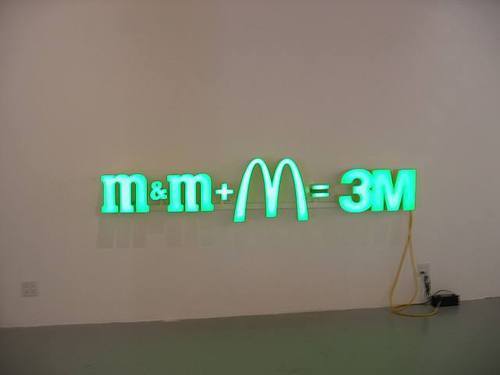 brand–noun
brand–noun1.
kind, grade, or make, as indicated by a stamp, trademark,or the like: the best brand of coffee.2.
a mark made by burning or otherwise, to indicate kind, grade, make, ownership, etc.3.
a mark formerly put upon criminals with a hot iron.4.
any mark of disgrace; stigma.5.
branding iron.6.
a kind or variety of something distinguished by somedistinctive characteristic: The movie was filled with slapstick—a brand of humor he did not find funny.7.
a burning or partly burned piece of wood.8.
Archaic . a sword.–verb (used with object)
9.
to label or mark with or as if with a brand.10.
to mark with disgrace or infamy; stigmatize.11.
to impress indelibly: The plane crash was branded on hermind.12.
to give a brand
to promote as a brand name. Origin:
bef. 950; ME, OE: burning, a burning piece of wood, torch, sword;c. D brand, G Brand, ON brandr; akin to burn1








Published on November 19, 2010 21:45
More on Branding to Come...
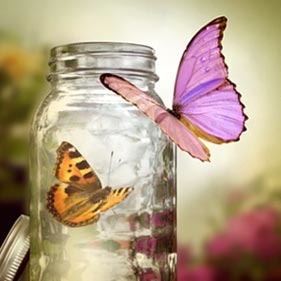
Thanks for your great comments so far on my "You are not a brand" post. They have really helped me figure out why the word "brand" hits me so hard and in such the wrong way.
I've responded to the comments and hope to hear more from you about what you think about this term or this idea of "branding."
I have realized while I consider myself the Capricorn realist in the world, when it comes to artists, writers, and poets, I am a romantic.
I have never romanticized living in poverty, but I think I do romanticize the act of creating, of living the life of a writer or poet or artist. I will be thinking a lot more about this today and hopefully, writing more on it tonight.
As I said, the comments have been intrigued me to think deeper about why I do dislike the word, "branding." Maybe because it comes from the corporate world and I do not want it in this artistic world. I realized if someone said, "I want to focus your work so you connect with a greater audience" I wouldn't have an issue with that. But hearing, "I want to brand your work..." makes me cringe.
So often, it comes down to language for me-- what words we chose to use and the ones we don't. It's why I write, really.
Thanks for listening. More soon...
~ Kells








Published on November 19, 2010 08:48
You are not a Brand...
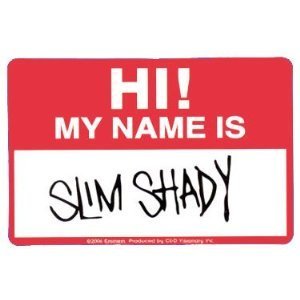 So I've been googling author websites this week as I'm trying to redo my website so it doesn't look as if it was created by a six-year-old and I've been finding this disturbing trend I want to discuss-- Branding.
So I've been googling author websites this week as I'm trying to redo my website so it doesn't look as if it was created by a six-year-old and I've been finding this disturbing trend I want to discuss-- Branding.Not cattle or clothes, but people.
Here's something I read that annoyed me:
I was reminded again how many authors think that by just hanging a website in cyberspace they are somehow building their brand. As it turns out, not so much.
This idea that we (authors/writers/artists) are a "brand" is really disturbing. I had heard about this "create your brand" and "you must have a platform" at a few writers conferences I've been at, but I thought it was something trendy. It seems it's not.
There's tons of websites dedicated to helping you "build your platform" and I am going to tell you this quite honestly, unless you are in a bathing suit and jumping off this so-called platform into a pool, then I don't want to hear about it.
I kind of kills my spirit to hear writers talked about as if we were corporations with logos and mottos and theme-songs.
I am not going to go into a grocery store and find your sweeping name across some sugary cereal. I am not going to recognize you for your commercial jingle.
I feel this "branding" idea is limiting. It feels as if it's another way for people who don't really write to sell things to writers: Be Your Own Best Brand! How to Create Your Brand for only $295. Build Your Brand BEFORE the Book!
Are you an artist or a commodity, my poet's heart asks.
I guess there is a part of me that knows many of us became writers because we could not *not* write, not because we thought of ourselves as a product. Maybe this branding is for those who became writers for the big bucks.
But it's not the money thang or the success thang I'm arguing here, don't get me wrong. I don't believe being a writer should equal a life of poverty. I want all of you to sell many many books. I want poets and writers and artists to have so much money they have no idea how to spend it all. I want all your pockets filled with success and spending money. I believe it's part of the job to promote your book, share your art, be part of the conversation, the community. But I don't think it has to be done by limiting yourself or creating yourself as a so-called brand.
Maybe this branding feels like selling something else.
I'm not sure, but I think focusing on branding dilutes the passion for the writing and puts the emphasis on being a "Writer" (capital W).
And it feels that this "branding" and "platform" language was made *for* us, not *by* us. And I take issue with that. It's hard enough to be a writer without someone trying to tell you to figure out exactly who you are before you begin. I mean, that is the beauty of art and writing-- DISCOVERY.
I don't think I should have to brand myself. I don't think you should have to either.
So if you've come here for the lecture, here's my final thoughts--
Forget your brand. You can write sci-fi and poetry. Fiction and romance novels. You do not need to limit yourself because it doesn't fit with your brand or because you were told you are an expert on bananas from South America, you can still be an expert on doughnuts in Cleveland. Or sex. Or bathmats.
When I hear sentences like this one (one that almost makes me weep), Brand-building is constant. It should always be in the back of your mind, what I want to say in response is:
Writing is constant and should always be in the back of your mind.
Or replace "writing" with "art" or "art" with "creating," but don't use brand.
Anything but brand.
I can't let myself be put in that box. I am not a Twinkie. You are not a Ding-Dong (okay, you could be a ding-dong, but I don't know that for sure). But you are definitely not a Twinkie, that I know.
So there I said it, I'm against this idea of branding oneself. I don't like it. I'm pretty sure it's for livestock and not writers.
When it comes to writing and art, your name tag should not read, "Hello, I'm Whomever You Want Me To Be." Ever. It should read, "Hi, I'm me," a complex person with complex thoughts and ideas. Overflowing. Various and Diverse.
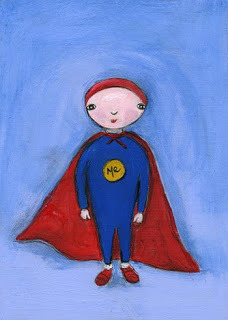








Published on November 19, 2010 04:03
November 18, 2010
Seattle People: Crab Creek Review Reading with Northwest Poets!

Please join us:
CRAB CREEK REVIEW Issue 2: 2010 Release Reading!at Elliott Bay Books
Saturday, November 20 at 3 p.m.
Contributors to Crab Creek Review gather at Elliott Bay Book Co. this afternoon to celebrate the release of the 2010: 2 issue of this venerable Northwest literary journal.
For over 25 years, Crab Creek Review has published some of the best poetry, short fiction, and creative nonfiction from "the Northwest and beyond." It also features interviews with writers, contests, and book reviews, all to be regularly stocked in our literary journals section at Elliott Bay Books.
Our incredible readers: Erin Malone, Kevin Miller, Peter Pereira, Michael Schmeltzer, and Martha Silano.








Published on November 18, 2010 14:44
Thankful Thursday
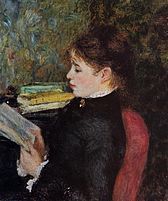
Gratitude journal
1) NPR for telling me exactly when a certain story will air (7:55 am A story on how your cereal brand tells your personality...)
2) Meeting new people I wasn't planning on meeting.
3) the night sky - it always amazes me.
4) the moon. see #3
5) The kind people in the world.
6) simplicity - in the form of living, spending, eating, daily routines, and holidays.
7) decluttering and finding people who need the things you no longer do








Published on November 18, 2010 05:50
Another Way to Procrastinate: Text to Speech DIY Movies
So, when I could have been writing poems, I found this great website where you can make your own movies.
I did this in under 10 minutes (probably no surprise to the viewer).
I might try to do one where one of these characters reads a poem of mine. Oh creative people, the possibility are endless.
You might recognize the Robert Hass inspired moment... Anyway, see what you think.








I did this in under 10 minutes (probably no surprise to the viewer).
I might try to do one where one of these characters reads a poem of mine. Oh creative people, the possibility are endless.
You might recognize the Robert Hass inspired moment... Anyway, see what you think.








Published on November 18, 2010 02:33
November 17, 2010
A Working Writer's Daily Planner 2011: Your Year in Writi...
 A Working Writer's Daily Planner 2011: Your Year in Writing
A Working Writer's Daily Planner 2011: Your Year in Writing
I just received this in the mail and wow, am I impressed!
It's a desk calendar for writers, but with grants, award, and contest deadlines all throughout it.
What I like about it is that it's nice to look at. Color images throughout, nice paper. The publisher did not spare expense at creating this, especially with the details, which I appreciate.
Besides dates, the Daily Planner also includes info on formatting your manuscript, blank pages for goals as well as suggestions for writers, short essays by other writers (there's a "Story Idea Generation" essay by Kelly Link), info on book festivals, some pages in the back to keep track of submissions if needed, links on further resources and more.
I cannot believe someone hasn't put something like this together yet. It's pretty incredible if you are someone who likes to have a desk calendar where you can jot down notes.
I keep a Google calendar, but I am using this journal on my desk to check out upcoming deadlines as well as to make notes to myself about what I'm working on, what poems were written when, as well as anything writerly I want to remember.
It's produced by Small Beer Press and sells for $13.95. It would make an incredible gift for your favorite writer, or yourself.
I'll be writing this up in the next issue of Crab Creek Review under Editors' Choice because I like it so much.








Published on November 17, 2010 04:32





